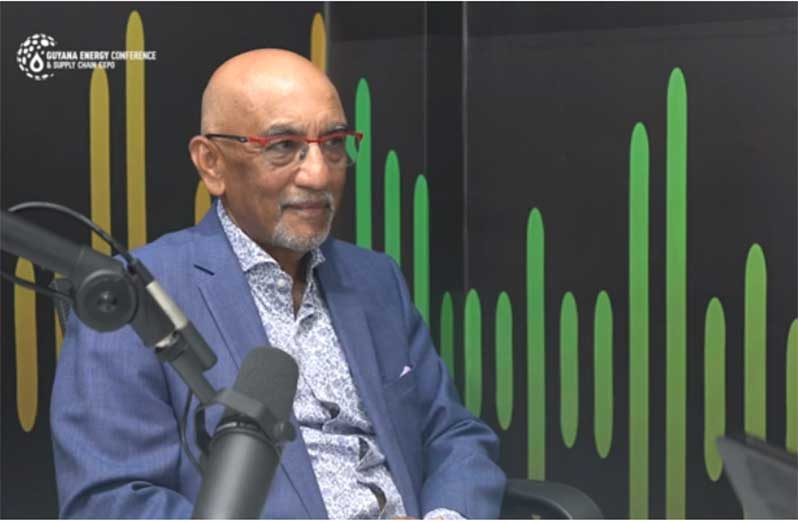IN a recent episode of the Energy Perspectives Podcast, Robin Singh, a sales expert and professional development strategist of Sandler Mississauga, brought attention to the urgent need for businesses in Guyana to promptly conform to the rapidly developing economic scenario of the nation.
Sandler is one of the leading sales training companies in the world.
President Dr. Irfaan Ali recently urged the private sector to adopt a proactive and aggressive approach to development and innovation. Singh’s observations addressed this call to action.
According to Singh, upskilling employees is more important than ever for businesses as Guyana’s economy grows at an unprecedented rate, mostly due to the country’s booming oil and gas sector. According to him, the traditional business mindset, which often prioritises short-term gains over long-term investment in human capital, needs to shift.
He therefore advised Chief Executive Officers (CEOs) and business owners to adopt a proactive mindset rather than a reactive one if they want to succeed.
He emphasised that businesses need to recognise the speed at which change is taking place and take prompt action to guarantee that their staff members have the skills needed to succeed in this new economic climate.
“Investment in skills is critical. When you think about it, they [employees] are the face of your company and they can dictate whether the reputation of your company is of high standard or low standard. We have got to upskill our people. And what does upskill mean? It has got to be training, technical training. It has got to be soft skills training: communications, team work…”
Singh stated that there is a greater need for worker training because of the significant investment taking place, which has made the economic sector more competitive.
“The competitors that are coming in are pretty skilled.” He reasoned that companies will spend money on employee training if they value their human resources.
“We [businesses] have a mindset of if I train you and I spend money on you, you will leave the company and take it somewhere else. That is a mindset. So, how do I change that mindset? Well, if I keep it the way it is and I don’t train them, I might go out of business or I might not grow.
“But what happens if I do train my people? Think about how they [employees] feel. The commitment that they now have to the organisation. I believe that they will stay because they value the investment that you are making on them. If you have the right culture and the right tools to help them grow, I think they will stay with you…,” the expert said.

Singh urged companies to communicate their vision to their employees and cautioned them against becoming complacent.
He explained that communicating a company’s vision to workers is crucial for several reasons, as it ensures alignment, motivation, and a shared sense of purpose among employees, ensuring the overall success of the company. “I have to document that [vision]. I have to put it in writing. And I have to communicate that to my team. If I have the right people in the bus, they are the people that will implement that vision.”
Singh stated that, although local businesses have an edge over foreign corporations, they still need to remain competitive. “Whoever is coming in, is coming in with a different culture. The Asians have a different way of conducting business. The Canadians… they have a different way. The Americans…they have a different way. We need to understand what those cultural differences are when we try to conduct business. So, what does that mean?
“We have to upskill again. I’ve got to upskill my negotiation skills to understand what that is. I’ve got to have a competitive advantage…I’m a local. What are those competitive advantages that I have and how well am I articulating that local competitive advantage versus the competition.”
He emphasised the need for high-quality public service, urging top officials, including government ministers, to undergo proper training to deliver exceptional service to citizens.
“We have to change the mindset from the perspective that starts from the top of that ministry. How well is that minster trained? How will is he coaching his different management levels? And how well is that different management levels training those employees,” Singh stated.
He pointed out that public sector employees must remember their salaries are funded by taxpayers, highlighting their responsibility to serve the public effectively.
Singh also highlighted government’s role in supporting the upskilling effort by providing businesses with incentives. He highlighted that governments in North American do this.
Founded by David H. Sandler in 1967, Sandler is a global organisation specialising in sales training, management training, and professional development.
Training thousands of employees per year, the company is known for its distinctive approach to sales, which emphasises relationship-building, understanding client needs, and a consultative selling process which are designed to help individuals and organisations improve their sales performance, leadership skills, and overall business strategies.


.jpg)











